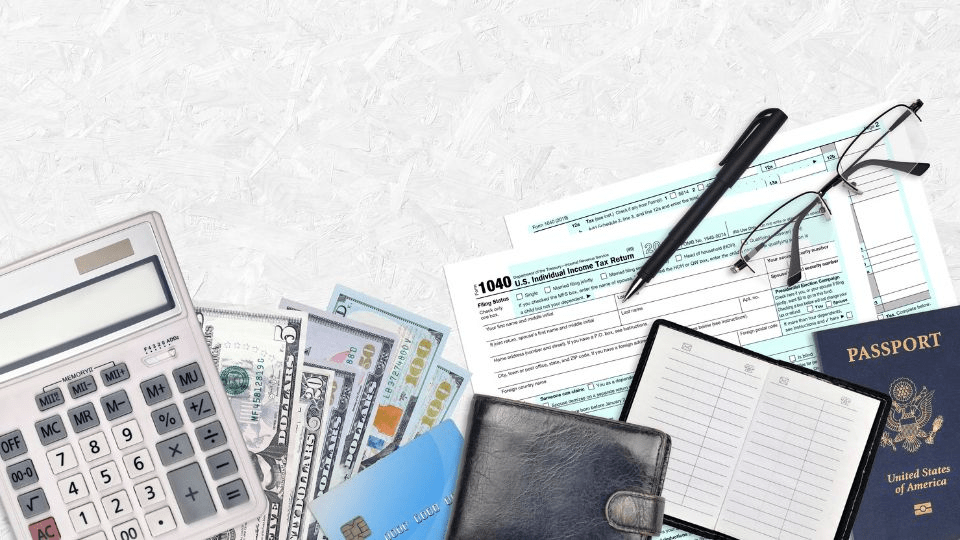A personal tax accountant is a certified professional skilled in managing and advising on tax-related matters. They play a crucial role not just in ensuring legal compliance but also in optimizing one’s financial situation through strategic planning and a deep understanding of the nuanced tax laws and regulations. Their importance is heightened in an era where financial literacy is essential for personal empowerment, transforming tax season from a stressful period into one approached with confidence and calm.
The role of a personal tax accountant goes beyond mere number crunching and form filling. They are experts in navigating the complex and ever-changing landscape of tax regulations, providing valuable insights into how to pay taxes in the most advantageous way possible. Their services are indispensable for individuals looking to not only fulfill their tax obligations but to do so in a manner that benefits their overall financial health.
Understanding Taxation Basics
Taxes aren’t just deductions from your paycheck or annual obligations to the IRS; they’re an integral part of how societies fund public services, infrastructure, and more.
Types of Taxes
In the U.S., taxes come in various forms, each with its purpose and set of rules. Here are the main types you’re likely to encounter:
Income Taxes: Levied on your earnings, both from employment and other sources like investments. These can be federal, state, and sometimes local.
Sales Taxes: Imposed on the sale of goods and services. These are state-driven and can vary widely from one state to another.
Property Taxes: Paid by homeowners, based on the value of their property. These are local taxes, and funding community services like schools and emergency services.
Estate and Gift Taxes: These apply to the transfer of wealth, either after someone’s death or through gifting.
Capital Gains Taxes: Taxes on the profit from the sale of assets like stocks or real estate, differing from regular income taxes in rates and application.
Taxation Laws and Regulations
The U.S. tax system is governed by a complex web of laws and regulations, primarily codified in the Internal Revenue Code. These laws are dynamic, often changing with new legislation and interpretations by the Internal Revenue Service (IRS). For the average person, keeping up with these changes can be daunting, yet understanding them is essential for making informed financial decisions.
Taxation laws cover everything from how income is defined, how much you owe based on that income, what deductions and credits are available to reduce your liability, to how and when you need to file your tax returns. They also outline penalties for late payments or inaccuracies, emphasizing the importance of getting things right the first time.
Benefits of Hiring a Personal Tax Accountant
Tax season doesn’t have to be challenging when you have a personal tax accountant by your side. They’re the experts who navigate the complex tax laws on your behalf, ensuring you comply while maximizing your financial benefits. Here’s why enlisting their help is a smart move.
Expertise and Knowledge
Tax laws are constantly changing, making it a challenge to stay informed. A personal tax accountant brings a wealth of up-to-date knowledge, ensuring you benefit from every possible deduction and credit applicable to your situation. Their experience spans various tax scenarios, offering you insights that could lead to significant savings and less stress during tax season.
Tax Optimization Strategies
More than just preparing your taxes, a personal tax accountant looks at your entire financial picture to suggest strategies that could lower your tax liabilities. Whether it’s the timing of income and expenses, investment decisions, or retirement planning, their advice is geared toward enhancing your financial well-being now and in the future. This proactive approach to tax planning can help you build a stronger financial foundation, avoiding pitfalls and seizing opportunities to save.

Qualities to Look for in a Personal Tax Accountant
Selecting the right personal tax accountant is vital for your financial well-being. It’s about finding a partner who aligns with your financial goals, not just someone skilled in number crunching. Key qualities include:
- Accreditation and Credentials: Ensure your tax professional is qualified, ideally a Certified Public Accountant (CPA) or holding similar certifications. This confirms their expertise and commitment to ethical standards in tax law and accounting.
- Experience and Specializations: Look for an accountant with experience relevant to your specific financial situation, such as freelancing, business ownership, or investment management. Their specialized knowledge can provide customized advice that makes a real difference.
- Client Testimonials and Reviews: Online reviews and testimonials are invaluable for gauging a tax accountant’s professionalism, responsiveness, and effectiveness. Positive feedback from clients with similar financial situations to yours suggests you’re making a good choice.
Steps to Finding the Right Personal Tax Accountant
Finding the right personal tax accountant involves a blend of self-awareness and strategic searching. Start by defining your financial needs—be it basic tax filing, comprehensive planning, or niche advice. With your goals in mind, seek referrals from your network and explore reputable sources like the American Institute of Certified Public Accountants (AICPA) to identify candidates with the right expertise.
Next, narrow down your options through interviews. Use this opportunity to assess each candidate’s familiarity with your financial situation, their approach to tax planning, and their commitment to staying updated on tax laws. It’s important to inquire about their experience with clients like you, their communication practices, and their fee structure.
This step goes beyond credentials; it’s about finding a professional who not only has the expertise but also shares your financial values and with whom you can forge a strong, lasting partnership. This careful selection process will lead you to a personal tax accountant who serves not just as a service provider but as a valued financial ally.
Services Offered by Personal Tax Accountants
Hiring a personal tax accountant means gaining access to a broad range of services designed to manage and optimize your tax situation.
Tax Preparation
Tax preparation is more than filling out forms—it’s about accurate, strategic submission of your financial data to ensure compliance and optimize returns. Your accountant will ensure that every deduction and credit you’re entitled to is claimed, reducing your tax burden and avoiding potential errors that could lead to audits.
Tax Planning and Advisory
Beyond annual tax filing, personal tax accountants offer ongoing strategic advice to minimize future tax liabilities as part of their private tax services. They help you make informed decisions about investments, retirement savings, and other financial moves to reduce your taxable income and enhance your financial health.
IRS Representation
Should you face an audit or dispute with the IRS, your tax accountant can represent you, leveraging their expertise to negotiate and resolve issues efficiently. This support can be invaluable, offering peace of mind and potentially saving you from penalties or additional taxes.
Importance of Personalized Tax Planning
Personalized tax planning is pivotal in shaping a financially secure future. It involves crafting strategies that are uniquely tailored to the individual’s financial landscape, ensuring that the approach to taxes is as personal as the financial goals themselves. This customization allows for the maximization of deductions and credits, directly targeting areas where individuals can benefit most.
As a result, not only are immediate tax liabilities minimized, but a foundation is laid for sustained financial health. Through personalized tax planning, individuals receive a strategic blueprint that aligns with their specific circumstances, optimizing their tax situation now and for the future.
Ensuring Compliance with Tax Laws
Ensuring compliance with tax laws is essential for avoiding penalties, fulfilling filing requirements, and receiving support in case of audits. It’s about staying on top of the rules to ensure you’re not facing unnecessary fines or scrutiny from tax authorities. By understanding and adhering to filing deadlines and requirements, individuals can navigate the complexities of tax regulations with confidence.
Furthermore, in the event of an audit, having detailed and accurate tax records, as well as professional guidance, can make the process smoother and less daunting. Ensuring compliance isn’t just about following laws; it’s a strategic approach to safeguarding one’s financial well-being and peace of mind.
Strategies for Tax Optimization
For retirement planning, they ensures you’re making the most of tax-advantaged retirement accounts, potentially saving you a significant amount in taxes over the long term through strategic tax planning services. When it comes to investments, they advise on the timing of buy and sell decisions to minimize capital gains taxes and take advantage of tax-loss harvesting, reflecting a key aspect of their tax planning services.
Real estate tax planning is another area where accountants offer invaluable insights, helping you navigate deductions, depreciation, and potential tax breaks associated with property investment. Through these strategic avenues, personal tax accountants facilitate a more robust and tax-efficient financial plan.
Maximizing Deductions and Credits
Maximizing deductions and credits is a key way to lower your tax bill, and personal tax accountants play a crucial role in identifying these opportunities. They are well-versed in common deductions such as mortgage interest, educational expenses, and medical costs, ensuring you claim everything you’re entitled to.
Furthermore, they can guide you through the maze of tax credits and rebates, from energy-efficient home upgrades to education credits, which can directly reduce your tax liability rather than just your taxable income. Their expertise extends to strategies for eligibility, ensuring you’re positioned to take full advantage of these financial benefits each year. Personal tax accountants help optimize finances by keeping up with tax law changes and ensuring potential savings aren’t missed.
The Role of Personal Tax Accountants in Estate Planning
Personal tax accountants play a crucial role in estate planning, ensuring your wealth is transferred efficiently and with minimal tax burden. They develop strategies to transfer your wealth in a tax-efficient manner, utilizing methods that align with your financial goals and reduce estate taxes. This can include specific gifting strategies and the strategic use of trusts.
Tax preparers utilize their knowledge of tax laws, exemptions, and thresholds to reduce estate taxes. Their expertise ensures your estate plan benefits from every available tax advantage, lowering the estate’s overall tax liability.
Through careful planning and the use of trusts, personal tax accountants help manage and protect your assets, while also specifying their distribution. They ensure trusts are correctly structured to meet your estate planning objectives, safeguarding your legacy.
Understanding Tax Implications of Life Events
Life’s key milestones not only bring personal joy and challenges but also significant tax implications. Here’s a snapshot:
Marriage and Divorce
Tying the knot or parting ways affects your tax filings. Marriage may lead to joint filings, offering potential benefits like higher income thresholds and various deductions. Divorce shifts you back to single status, impacting your tax obligations and benefits. A tax preparer can help navigate these transitions to optimize your tax outcomes.
Homeownership
Owning a home can unlock tax deductions on mortgage interest and property taxes, reducing your taxable income. Selling your home involves capital gains considerations. Professional tax advice ensures you leverage homeowner benefits while staying compliant with tax laws.
Parenthood
Welcoming a child introduces tax benefits such as credits for child and dependent care, which can lower your tax bill. As your child grows, additional considerations like education savings plans come into play. A tax accountant can guide you through these opportunities, ensuring your family’s financial planning is solid and tax-efficient.
Summary: Empowering Your Financial Journey with a Personal Tax Accountant
The journey with a personal tax accountant is more than navigating tax season; it’s about empowering yourself financially. Through their guidance, you’re not just surviving the tax season but thriving throughout it, making informed decisions that enhance your financial well-being. This partnership allows you to focus on your goals and dreams, secure in the knowledge that your financial and tax planning is in expert hands.
Choosing to work with a personal tax accountant is a step toward long-term financial stability. They’re not just a resource for tax season; they’re a year-round advisor who can help you plan for the future, anticipate challenges, and seize opportunities. With their support, you can build a financial foundation that’s not only secure but also primed for growth, ensuring that you and your loved ones enjoy peace of mind today and well into the future.






